Research Papers/Articles
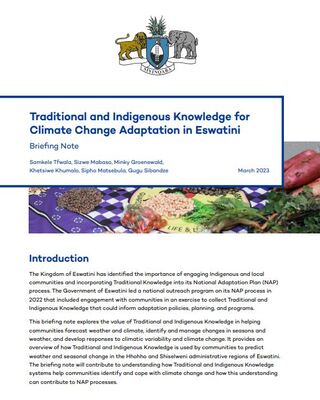
Traditional and indigenous knowledge for climate change adaptation in Eswatini
2023
Author(s): Tfwala S, Mabaso S, Groenewald M, Khumalo K, Matsebula S, Sibandze G
This briefing note explores the value of Traditional and Indigenous Knowledge in helping communities forecast weather and climate, identify and manage changes in seasons and weather, and develop responses to climatic variability and climate change.
Implementation lessons from World Bank operations in supporting indigenous peoples
2023
Author(s): World Bank
This Evaluation Insight Note builds on Independent Evaluation Group evidence to identify lessons for working with Indigenous peoples who live in poverty.
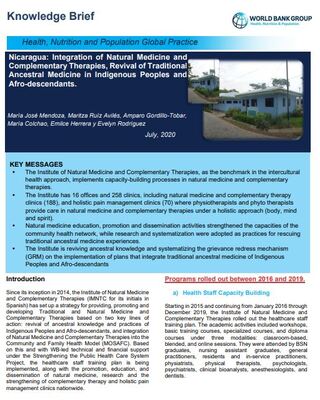
Nicaragua: integration of natural medicine and complementary therapies, revival of traditional ancestral medicine in indigenous peoples and Afro-descendants.
2020
Author(s): Mendoza MJ, Avilés MR, Gordillo-Tobar A, Colchao M, RodrÃguez EHE
The brief highlights the initiative of The Institute of Natural Medicine and Complementary Therapies in reviving traditional ancestral medicine among Indigenous Peoples and Afro-descendants in Nicaragua.

Measuring Regional Ethnolinguistic Diversity in Sub-Saharan Africa: Surveys versus GIS
2020
Author(s): Gershman B, Rivera D
This paper compares two approaches to measuring subnational ethnolinguistic diversity in Sub-Saharan Africa, one based on censuses and large-scale population surveys and the other relying on the use of geographic information systems (GIS).
Amazon Sustainable Landscapes Program: Annual Conference 2021
2021
Author(s): Global Environment Facility
This report highlights the outcome of the Fourth ASL Conference held from November 17-18, 2021. ASL works to establish and strengthen networks of people and institutions to share ideas, lessons learned and innovations, accelerate learning, and generate/systematize/socialize knowledge at various levels and for diverse audiences. The ASL Annual Conference is designed to be the largest gathering of the ASL community.
Knowledge and Adoption of Complex Agricultural Technologies: Evidence from an Extension Experiment
2021
Author(s): Hörner D, Bouguen A, Frölich M, Wollni M
Based on a randomized controlled trial, this study assesses the effects of ‘farmer-to-farmer’ extension and a video intervention on adoption of a complex technology package among 2,382 smallholders in Ethiopia.
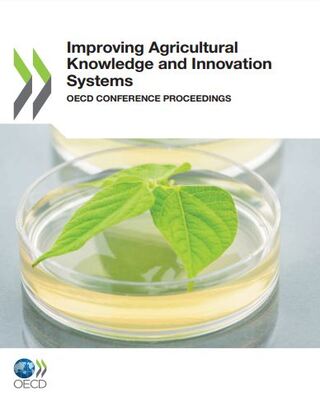
Improving Agricultural Knowledge and Innovation Systems: OECD Conference Proceedings
2012
Author(s): Organization for Economic Cooperation and Development
This conference proceedings from the OECD Conference on Agricultural Knowledge Systems (AKS), held in Paris, on 15-17 June 2011, discusses a large range of experiences and approaches to AKS explores how to foster development and adoption of innovation to meet global food security and climate change challenges. The conference considered developments in institutional frameworks, public and private roles and partnerships, regulatory frameworks conducive to innovation, the adoption of innovations and technology transfers, and the responsiveness of AKS to broader policy objectives.
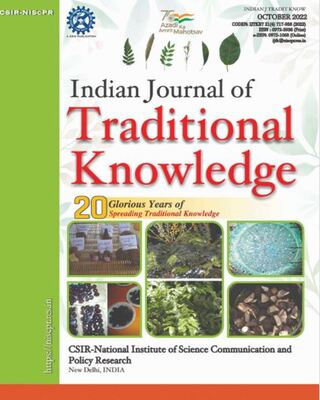
Plants and Culture: Plant Utilization Among the Local Communities in Kabayan, Benguet Province, Philippines
2018
Author(s): Balangcod TD, Balangcod KD
This paper provides an overview of the project undertaken in Cordillera region in the northern most part of the Philippines to determine the useful plants and document the traditional knowledge that are associated with the useful plants.
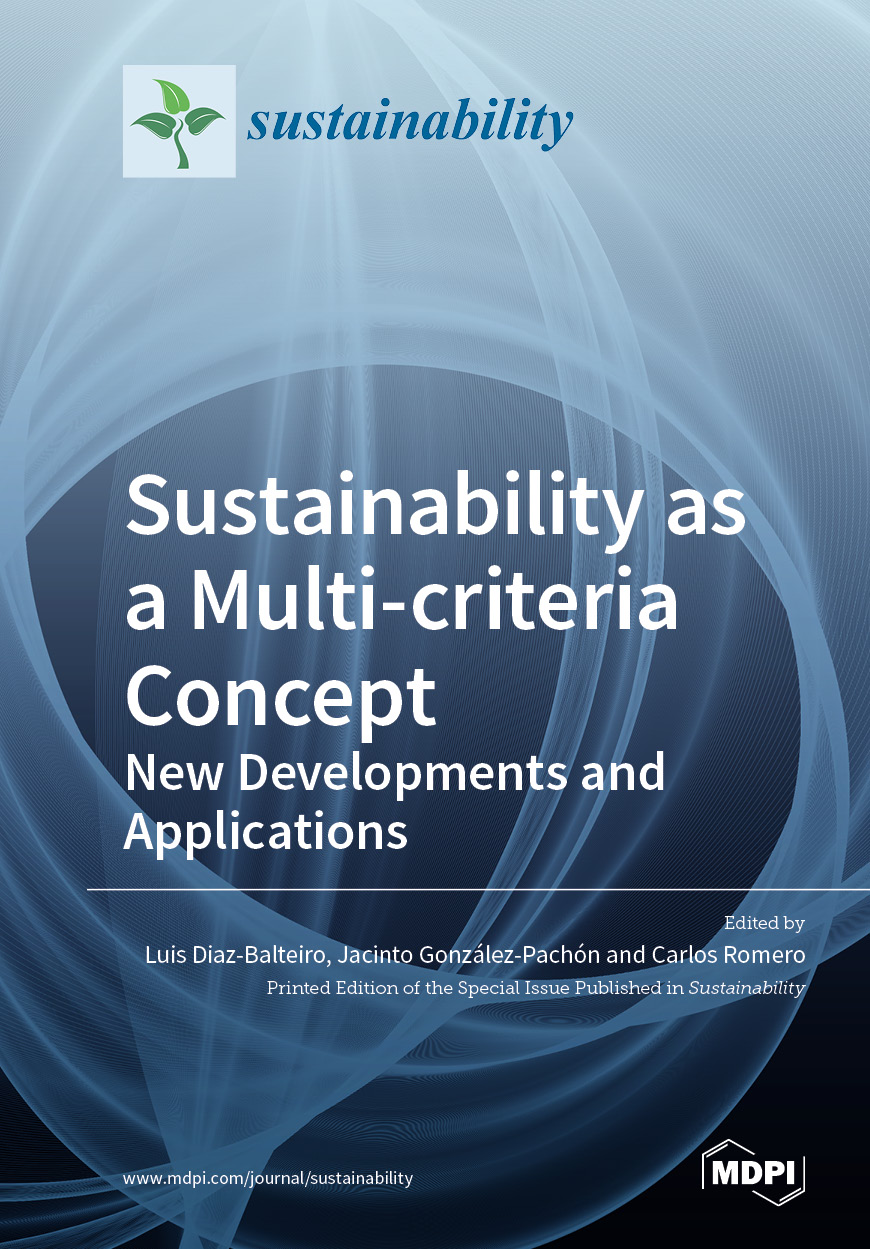
Indigenous Peoples' Food Systems and Biocultural Heritage: Addressing Indigenous Priorities Using Decolonial and Interdisciplinary Research Approaches
2022
Author(s): Swiderska K, Argumedo A, Wekesa C, Ndalilo L, Song Y, Rastogi A, Ryan P
The paper presents a decolonial and interdisciplinary framework for action-research on Indigenous food systems past and present, from farm to plate, drawing on the virtual workshops, Andean decolonising methods and historical approaches. It concludes that decolonising action-research, led by Indigenous Peoples, is urgently needed to reverse the rapid loss of food-related biocultural heritage.
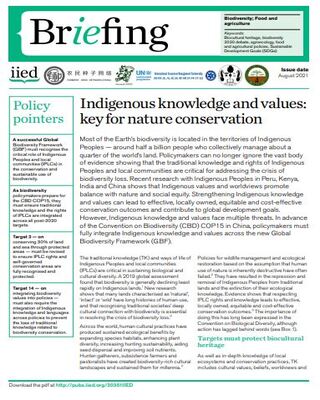
Indigenous knowledge and values: key for nature conservation
2021
Author(s): Swiderska K, Argumedo A, Song Y, Rastogi A, Gurung N, Wekesa, C, Li G
This research shows that, across different Indigenous cultures, TK enshrines core values of balance, reciprocity and solidarity with nature and in society that provide flexible principles for sustainable and equitable development. These can be strengthened as the basis for community owned, equitable and self-sustaining conservation and development initiatives, such as biocultural heritage territories.



